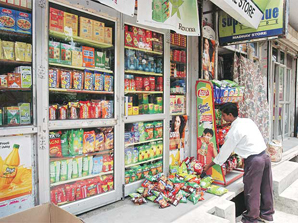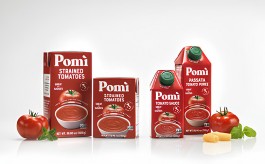Is the Maggi saga stifling food companies?
By Jim Hollen | July 31, 2015
Over the past several months, new product launches have slowed as companies are growing increasingly anxious about regulatory oversight
 The list of food companies that are cutting back supply, withdrawing products from the market and putting new launches on hold is getting longer by the day. In the latest such incident, a leading poultry company has curtailed the supply of processed chicken to retailers after it came under the scrutiny of the Food Safety & Standards Authority of India, or FSSAI.
The list of food companies that are cutting back supply, withdrawing products from the market and putting new launches on hold is getting longer by the day. In the latest such incident, a leading poultry company has curtailed the supply of processed chicken to retailers after it came under the scrutiny of the Food Safety & Standards Authority of India, or FSSAI.Over the past two months, several food items, which were not approved by the regulator, have been pulled out from the market. The future too looks grim. Usually a time for launches, the festival season is unlikely to see too many new products, given the huge pile of pending approvals with FSSAI.
In the wake of the Maggi noodles saga, the food industry seems to be taking a step back from growth. The Maggi scare, which was prompted by the presence of taste enhancer monosodium glutamate, or MSG, and excessive lead in some samples, led to FSSAI ordering a nationwide recall of the product last month. Switzerland-based Nestle, which makes the instant noodles, was also asked to close its manufacturing plants in India.
While Nestle is now fighting the FSSAI order in the Bombay High Court, the recalls and cut-backs point to another problem: unease in the industry. The unease could only increase, given that Nestle has for the first time in about two decades run into the red, owing to the Maggi mess, as its April-June quarter numbers showed.
Without mincing words, Union Food Processing Minister Harsimrat Kaur Badal at a conference organised by the Confederation of Indian Industry earlier this month said FSSAI was creating "an environment of fear in the industry.'' FSSAI needed to streamline its regulations as the steps taken by the regulator were "stopping innovations in the processing sector, she said, adding that the industry was in the midst of a "fear psychosis''.
Throwing a scare
Is the fear real? Clearly, Nestle, the company at the centre of the crisis, is worried about restoring confidence in brand Maggi, which makes up for 30 per cent of its India revenue at Rs 2,500 crore. Having announced it was destroying Maggi noodles worth Rs 360 crore following the FSSAI order, the group replaced its CEO Etienne Benet with Suresh Narayanan from the Philippines.
On whether there's an environment of fear in the industry, Piruz Khambatta, chairman of the national food processing committee at CII, says there's risk in any business, whether it is food, taxi aggregation or any other. Rather than live in fear, "the industry must learn to manage and mitigate risk," he adds.
The risk from a recall could be many. Sanjay Kedia, country head and CEO of Marsh India, an insurance and broking and risk management firm which has been looking at the food industry closely after the Maggi controversy, says, "the possible stress on balance sheet can be very high due to any possible government action in the food and beverages industry.''
Until now, a lot of F&B companies, says Kedia, were operating oblivious to the bearing food recalls could have on their cash flows. To safeguard against such risks, Kedia suggests "evolved insurance solutions" like contaminated products insurance that can cover costs involved in case of recall, contamination, packaging problems and legal liabilities.
Even as companies and experts wake up to risk management, the government has begun to communicate with the industry to understand its side of the story.
On Monday, top officials of the health ministry and FSSAI had a meeting with senior members of the food industry to discuss the regulatory mechanisms and product approval processes, among other things. Also, FSSAI is setting up its own house in order by filling up vacancies. It recently appointed former agriculture secretary Ashish Bahuguna as its chairman, after months of that post lying vacant.
FSSAI CEO Yudhvir Malik could not be contacted for this report, but company executives say the lacuna in the regulatory system is adding to the nervousness. "Without sufficient number of accredited laboratories and infrastructure resources, how can FSSAI order a recall like it did in the case of Maggi noodles?'' asks an industry source.
Many people have also questioned whether the tests conducted by FSSAI on food samples were trustworthy as global tests for the same product did not show any contamination.
Problems galore
Still, the FSSAI clampdown has not been entirely uncalled for. For long, the Indian food industry has been half-hearted about adhering to regulatory guidelines. In the first five months of 2015, according to Wall Street Journal, the US food regulator has rejected more snack imports from India than from any other country.
Delhi-based Centre for Science & Environment had called the Maggi development a wake-up call for food & beverage companies. "I am happy that regulators are testing food products and taking action. As long as you don't test, you will not know what is going into these," CSE Deputy Director-General Chandra Bhushan says. It was CSE that had first raised the issue of pesticides in aerated beverages 12 years ago, prompting the then government led by Atal Bihari Vajyapee to set up a joint parliamentary committee to investigate the matter.
It was then that the government got active on the Food Safety & Standards Act, which mandates what should go into packaged foods and to what extent. An industry source says most large companies are aware of the regulatory processes, and smaller companies are becoming cautious now.
Food and Consumer Affairs Minister Ram Vilas Paswan has made it clear that the government does not want to create "panic or inspector raj". "Investors should not fear. There are many good companies, but those in the wrong should be aware that the government is watching," he says.
Still, questions remain on how and by when FSSAI would be in a position to scrutinise the food industry in a comprehensive way, rather than through the present method of tests in ad hoc labs across states.
Advertisement








